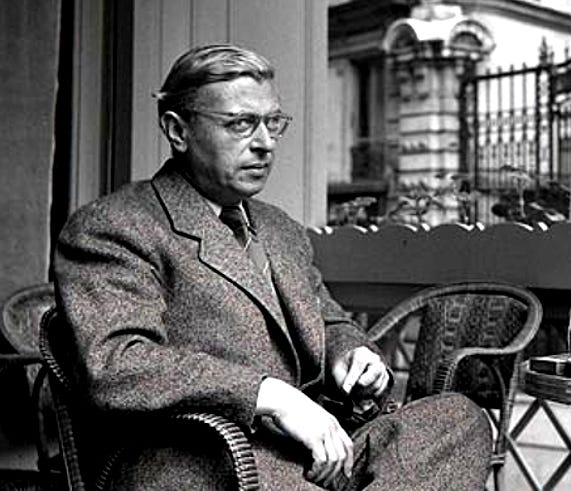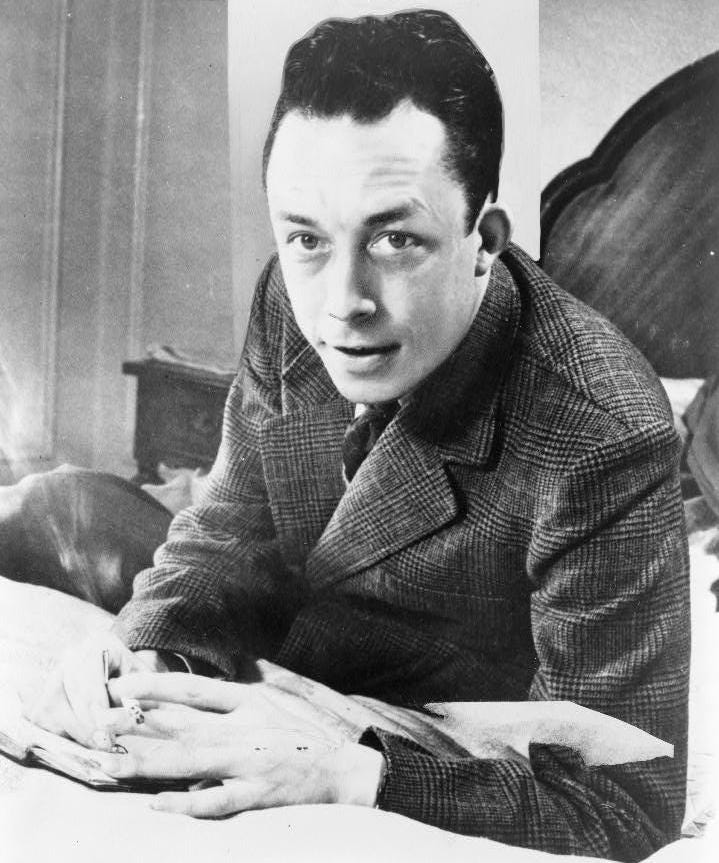The high cost of existentialism
Some of my posts are based on messages I offer at the Circle of Hope, Broad & Dauphin PMs, you can hear the original message here. Subscribe to the podcast here.
This week, one of my friends, a professor of New Testament studies in California, sarcastically asked me why I hate capitalism after I posted this column that criticizes the meat industry for prioritizing profit and the satisfaction of their shareholders over the welfare of animals and the health of human beings. It was a funny interaction, so I didn’t know what to do. I offered him a New Testament quotation. My cousin said, “Funny, that passage is why I’m a capitalist.” (Here we go.) I don’t really want the Bible to point me in any other direction that being a Christian. I hope I don’t buy into some other philosophy as a result of reading the scripture. I’m following Jesus, and even though other ideas might complement it my understand of it, I believe those philosophies are ultimately superseded by our life in Christ as part of a new creation.

Of course, if one were to apply an existentialist philosophy to how we read the scripture, than I suppose we could make it mean anything we want it to mean. I think that’s what we have often done. We could justify war, slavery, chauvinism, and greed. Ultimately though, most existential philosophers would say we don’t even need the Bible to do that. If the Bible is just subject to our own interpretation and not something Greater than it might as well not exist. If we think there is something greater, and I’ll make it easier for us, Someone Great who is influencing us today in real time, well then, now we’re talking. In really broad strokes, I want to work through some of the classic existential philosophers as a way of broadening our understanding of our faith, and even welcoming their invitation to make our own choices about the world around us. I’m offering my free thoughts about existentialism and that is existentialist in itself, and so though I will warn you about these philosophers, there is a great deal that I, and all of us, owe them—and for the harm they’ve inflicted on society, a great debt it owes us. Ultimately, though, our choices, of course, are informed by our Creator. I think a Christian understanding of our selves says that Creators’ essence—his nature—is more fundamental than material existence. John opens his Gospel with this very idea. John’s Gospel is all about the material existence of the Word of God, Jesus. And to John, Jesus didn’t wasn’t “born” when Mary gave birth to him, rather, He was always with us. God’s essence was made material in the person of Jesus Christ. Jean-Paul Sartre was an important existential thinker would say precisely the opposite. Existence precedes essence. The basic idea is that our nature, or the nature of anything, is less important than its material existence. Nothing exists but ourselves. We then apply meaning to everything we experience as a secondary function. Human beings then don’t possess any inherent identity or value. willed for Him, making his birth relevant at all, is so crucial to us today. According to the existentialists like Albert Camus, the opportunity to give life its own meaning, while absurd—consider the human desire to search for meaning versus the apparently indifferent universe—is also freeing. The Apostle Paul on the other hand would say that that “freedom” is in fact slavery to ourselves, and in his new world, he is free because he is no longer beholden to a life in pursuit of his own meaning, rather he is a servant of Jesus.

The Essential One who preceded our own existence offers us meaning to our lives. He gives us our destiny, our purpose for being. Our faith, according to Paul, is not of human origin. Paul is over trying to please himself or please others; he is no longer enslaved to.Paul is saying specifically here that he didn’t come to follow Jesus through his own logic, his own reason, or his own rationality. It was revealed to Him by Jesus himself. Jesus gives our life meaning. Contrast this with the founding fathers of existentialism: Soren Kierkegaard and Friedrich Nietzsche. Both of whom considered the making of fundamental value choices to be the ultimately expression of freedom. Kierkegaard felt quite similar to Nietzsche regarding the life of humans. However, rather than settling in the meaninglessness of life, he wrestled with the angst the such moral confusion, and found that faith—or a leap of faith—caused one to reach a higher state of existence, transcending the trauma of the burden of moral choices. Kierkegaard, while hostile to the Church at large, was quite welcoming of Christianity. The internal choice to have faith changes the individual, no external stimulus needed (contrast to Hegel). So Paul’s external conversion, though necessary for him, in the view of Kierkegaard could have been internal and equally effective.

Nietzsche called Christianity a religion of pity. He argued that we lose strength when we feel pity. He called himself an immoralist—and as such believed that we were to make our own ways, our own rules. Nietzsche’s rule for life: do what you want, you give everything meaning. Ironically, the Church around Nietzsche is Europe seemed to be doing the exact same thing and continues to. The life I’m talking about it markedly different. There’s more we could say about these thinkers who have so readily and effectively influenced the way that an Enlightened nation formed, justifying slavery, subjugation, genocide, and the continued pursuit of self-interest as good. The absence of morality—in fact the idea that morality is in fact immoral, leads the way to all sorts of destructive things. Nietszche vilifies empathy and grace. So the fundamental choices of Jesus, to him, would be the ultimate weakness. Jesus found pit on us and redeemed us, we become whole in the process. The kingdom of God which puts the last first and the first last is still a whole different worldview. Back to that passage in Philippians. Paul’s appeal to the church is simple: be like-minded and don’t let your ability to make individual value choices be your highest calling. Have the same love, be in one spirit, of one mind. This is very hard today. We might even think that it’s wrong to have us all “believe the same thing,” since the existential philosophy that we make our own universe in contrast to the manifestly indifferent universe. Paul says otherwise. Build a community. Build one that isn’t based on individualism. Individualism violates and the idea that we might live in community mutually submitting to each other and to Jesus together. In Circle of Hope, we have a heavy emphasis on communal living and mutuality in Jesus, so individualism—aside from the realizing our own self-worth in the process—is something we need to die to. We need to die to it because life in Christ, in the church, is what completes us. Jesus submitted his ability to make his own choice to save us. It is the opposite of the self-interest that was so readily and easily born out of the existential movement is problematic in a universal way. Jesus frees us from being slaves to ourselves and our own free will. He compels us to be enslaved to Him. He compels us to do something Greater than simply what our own existence offers. Nietszche says, “What does your conscience say? You should become the person you are.” “There is more wisdom in your body than in your deepest philosophy.” That angst that Kierkegaard writes of, that despair that humans feel, that comes from an individual pursuit of meaning doesn’t lead us to Christ. Not only do they lead us to nations of inequality, of warfare, and of hatred—they corrode our souls. The pursuit of self leaves no room for Jesus, for community, for faith. Although seemingly founded on good principles—that of self-worth and individual human rights—it is misguided. The path to following Jesus is about letting Him give us our worth and our rights. Our selfish, individualistic choices lead to bad philosophy and a bad world, where the thin places that heaven and earth touch seem to be fewer and further between than ever before. Our turmoil, despair, angst, anxiety need to be healed—that is the greatest injustice these philosophers feel. We need to die to ourselves, like Paul instructs the Philippians, in every facet of our existence, building an alternative community together. And this community isn’t just a new being that then finds its freedom in making choices, it’s a community of Christ that submits to Him in the way he submitted to death in order to save us. The choice of Lent then is to do something that is Greater than yourself. To do something together. Not to follow rules, but to follower the ultimate Ruler. Not to just obey orders, but to mutually live together in a Jesus-edifying way. Jesus’ choice to die, and ours with him this season, is the antidote to the angst of Kierkegaard, the nausea of Sartre, or the alienation and revolt of Camus. Our resurrected selves, the new creation—our true selves in Jesus—that’s what gives us freedom, not just our choices or ability to apply meaning.